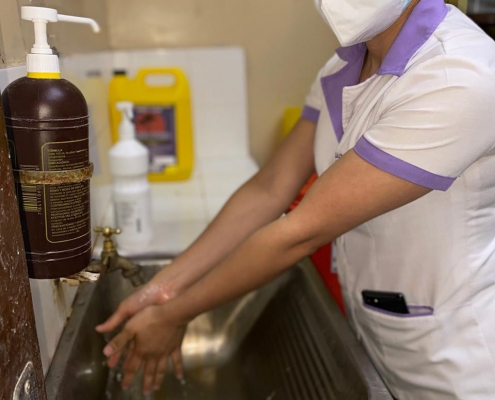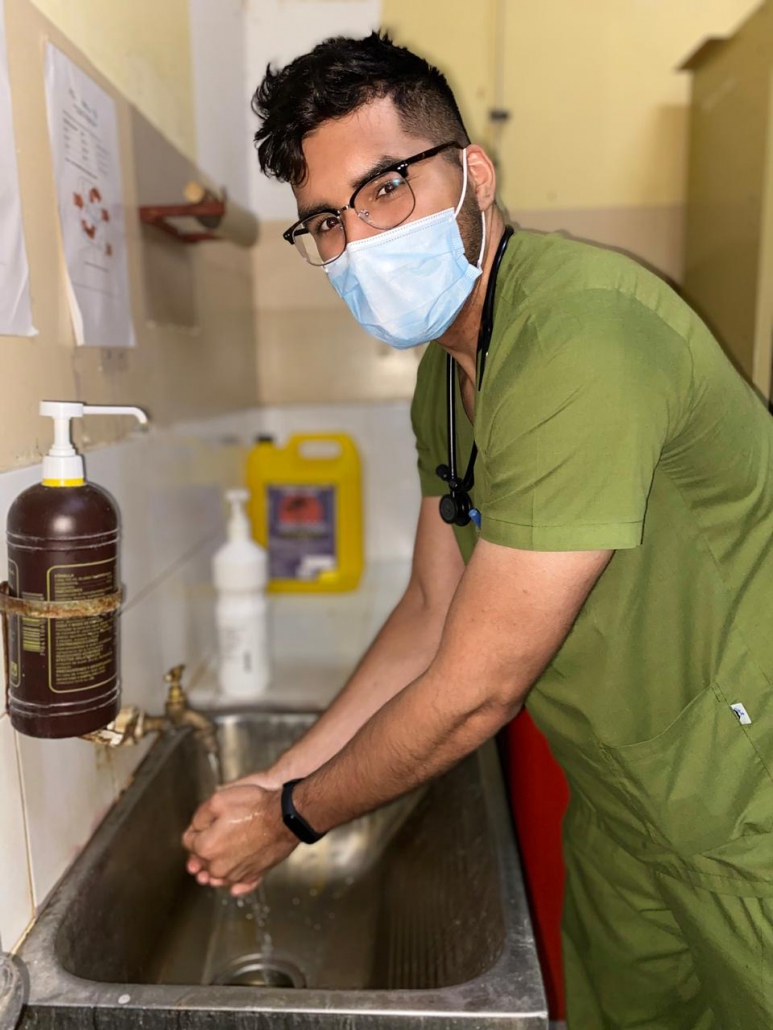Paraguay

The global health emergency situation has revealed the urgent need to guarantee the Human Rights to water and sanitation in order to ensure the fight against COVID-19. The Spanish Cooperation has made its resources available to Paraguay, within the framework of its programmes, to ensure the continuity and proper functioning of water and sanitation services.
Despite sustained growth in recent years, there are still significant gaps in Paraguay in terms of achieving total coverage of drinking water and decent sanitation, especially in rural areas, where Spanish Cooperation has focused its efforts.
Paraguay is one of the countries that have received the most support from the Cooperation Fund for Water and Sanitation (FCAS), with a grant of $100m (€76.2m), which has been managed through two programmes with the IDB as a strategic partner:
- The first programme, within the scope of the Paraguayan Ministry of Public Works and Communications, has targeted the Northwestern Region of the Chaco and Intermediate Cities of the Eastern Region ($60m).
- The second programme has as its partner the National Environmental Sanitation Service of Paraguay (SENASA), which is part of the Ministry of Health and Social Welfare, and is aimed at promoting access to water and sanitation in Small Towns and Rural and Indigenous Communities (PAYSRI) ($40 million).
Through both programmes, to date, more than 227 water and sanitation systems have been built in rural communities and 39 systems in indigenous communities, reaching 132,000 people. In addition, drinking water and sanitation is being supplied to small towns, serving more than 132,000 people who have a right to water. It is also worth highlighting the effort made in the country through these programmes to mainstream the gender approach, with the aim of making women’s participation effective within the Community Sanitation Boards in rural communities.
The first operation underway is the Drinking Water Supply and Sanitation Solutions Programme in the Western Region or Chaco and Intermediate Cities of the Eastern Region of Paraguay (PRY-014-M). Once the works corresponding to the adductor pipes, distribution centres and pumping stations have been completed, the construction of drinking water supply networks will be underway in 87 indigenous communities in Chaco Central, with 70% progress by the end of 2020. The programme includes social work with the indigenous communities involved to enable prior consultation and the development of agreements for interventions in their territories.
In relation to the intermediate cities, in the city of San Juan Bautista the works on the basic network, the pumping stations and the treatment plant have been completed. The treatment plant is in a position to receive the effluent from the direct connections to be made to this basic network for processing. The San Juan condominial sewerage system and the sanitary sewerage works in the cities of Caacupé and Tobatí and their wastewater treatment plants have suffered delays in their execution, but it is expected that they will be able to regain the pace in January 2021. For the city of Horqueta, construction work on the sewerage system is underway, with manholes and condominial pipes having been installed in nine blocks, and work on its wastewater treatment plant is also underway.
Complementing the sewerage systems, the construction of basic family sanitation units for the Chaco in indigenous communities and in the Eastern Region is underway. Of the 1,215 planned, 1,026 have already been installed.
In terms of the sector’s institutional strengthening and training component, a contract has been signed with the Getulio Vargas Foundation and training in water and sanitation has begun to be provided to the sector’s main institutions. In the same way, the following initiatives are being promoted: planning studies, strategies to promote the training of specialised human resources, plans to strengthen the capacities of the government’s technical water departments and other institutions in the sector and technical assistance to providers, as well as the implementation of a computerised management system and the updating and standardisation of technical standards for the design of drinking water, sewerage and wastewater treatment systems and levels of requirements for wastewater discharges.
More information

In 2020, work has been done on the design of the “Water and Sanitation Project for the Metropolitan Area of Asunción (AMA) – Lambaré Basin”, under the responsibility of the Ministry of Public Works and Communications, through the Directorate of Drinking Water and Sanitation (DAPSAN), which is still in the formalisation phase. It has been set up with a view to creating combined operations, involving different actors and forming large operations that include technical cooperation from FECASALC for $1m (“Support for the implementation of reforms, institutional strengthening and the formulation of long-term investment plans for the water and sanitation sector in Paraguay”) and $0.25m from Aquafund, a $10m EU donation entrusted to Spain for administration, as well as reimbursable cooperation from FONPRODE ($60m) and the IDB ($105m). It is worth highlighting the multiplier effect produced through FECASALC as an axis that generates trust and alliances between the different institutions participating in this programme. The project is focused on improving sanitation conditions in the Metropolitan Area of Asunción, specifically in the south-western area (Lambaré river basin) and will benefit 480,000 people.
The Lambaré programme is an emblematic element of the Spanish Cooperation’s commitment in Paraguay to achieve SDG 6, given the partnerships that have been generated and that have maximised the impact in order to advance towards achieving the goals set out in the 2030 agenda.
The Project for the construction of drinking water and sanitation systems in small towns and rural and indigenous communities in Paraguay, a continuation and expansion of the completed programme PRY-011-M with the same SENASA implementation team, is still underway and will benefit a total of 133 communities: 85 rural communities, 10 peri-urban areas, 30 indigenous communities and eight small towns. There will be around 132,000 beneficiaries, with the support of credits from AECID’s Development Promotion Fund (FONPRODE). Practically all of the bidding processes for works, supervision and community support services have been published and are in the process of being awarded and/or contracts signed. Of the 85 rural communities, the first package of 33 rural communities is under construction (nine systems completed); the second package of 31 is in the process of being awarded. Of the eight small towns, the contract for the first package of construction of sewerage systems in three small towns (Farm, Capitán Miranda and Yhú) has been signed; the tender for the second package of sewerage works in four towns (Choré, Yby Yau, Yaguarón and Pirayú), and the respective audit consultancies have been published.
The year 2020 has been significantly marked by the effect of the COVID-19 pandemic, causing innumerable delays in the works and in all processes in general. As a result of the declaration of a health emergency by the government due to COVID-19, and to mitigate its effects, it has been decided to intervene from the two programmes in execution. Under the Programme for solutions for the supply of drinking water and sanitation in the Western Region or Chaco and intermediate cities in the Eastern Region of Paraguay, wells are being drilled and elevated tanks are being installed in San Juan Bautista, Tobatí, Caacupé and Horqueta, and in the Chaco, the aqueduct will be extended to the town of Mariscal Estigarribia.
Within the Project for the construction of drinking water and sanitation systems in small towns and rural and indigenous communities in Paraguay, more than $3m of FONRPODE has been redirected to the Emergency Plan to support hospitals and health facilities with water and sanitation and hand washing stations, the purchase of water trucks and storage tanks and the construction of systems in 31 rural communities and the repair of another 69 systems.
In this context of “water and sanitation support to hospitals and health centres”, the system for the Hospital de Clínicas in Asunción was inaugurated on 10 July.

